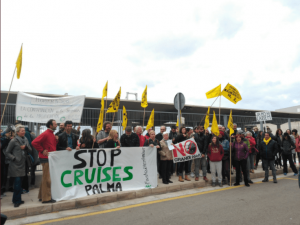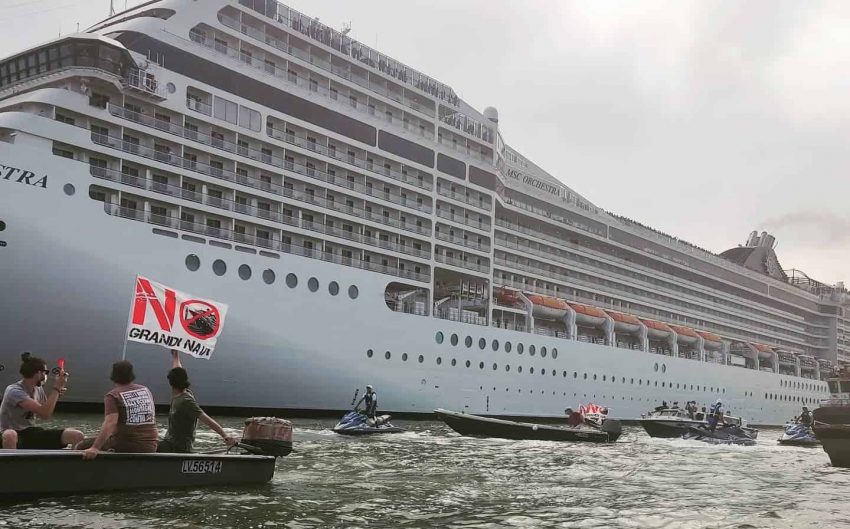Last week we discussed some of the issues surrounding over tourism in many European cities. That concern also exists in the cruise industry albeit more around environmental and sustainability issues, and the large number of passengers on ships contribute to the overcrowding. Other concerns arise around the impact on food supplies, accommodations and the local ecosystem.
In the news last year there were protests in Amsterdam, Norway and Marseilles, among other cities, impacting cruise ships and their passengers. For the most part the protests have been peaceful but certainly uncomfortable for all parties involved. Some lines have changed itineraries to protect their passengers from protesters. Others are working with locals to address the concerns about overcrowding and the economic impact.
The cities themselves are taking a more hard line approach. Amsterdam is relocating or reducing the number of sea and river cruises that stop in the city. Their intent is to halve the number of ships by 2026 and stop them altogether by 2035. Barcelona, one of the most popular cruise ports, have added a new tax aimed at short term stays. Venice has banned cruise ships in the heart of the city altogether. Greece, concerned about over crowding on beaches, has limited the number of ships that can stop each day on popular islands such as Santorini and Mykonos and increased docking fees for other popular islands.

According to a UK cruise blog, “Cruise lines are investing heavily in new technologies to reduce their environmental footprint. This includes more efficient engines, advanced waste management systems, and even experiments with alternative fuels.”
The industry is exploring new horizons. This could mean more cruises to less-visited parts of the Mediterranean, increased focus on Northern European destinations, or even the development of new ports in areas eager for tourism development. Shorter term there are itinerary changes to current cruises the ensure they meet the requirements of each port, such as the number of ships allowed at any given time. Some areas have implemented “slow travel”, a reduction in the speed of the ships passing through to prevent damage to the infrastructure and wildlife.
Some companies are looking at ways to better integrate with local economies, ensuring that more tourism income stays in the communities they visit. This starts with a trend towards more immersive, culturally sensitive experiences, such as culinary or wine tours that engage with the local economy. Rather than simply dropping passengers off for a few hours of sightseeing, cruise lines are partnering with local organizations to offer more meaningful interactions.
Here are more of the things that you can do as a respectful cruiser;
- Look for cruise lines that prioritize sustainability. Many companies are investing in cleaner technologies and more responsible practices.
- Smaller ships often have less environmental impact, and can access ports that are off-limits to larger vessels.
- Consider cruises that visit lesser-known destinations. This not only provides unique experiences, but also helps to more evenly distribute the impact of tourism.
- Off-season cruises can also help reduce overcrowding in popular destinations.
At the heart of this issue is not to stop or reduce the amount of times you travel, but rather to approach it more like you would hope others would when staying with you. Be respectful, pick up after yourself and don’t deplete the resources. This way you will be welcomed back with open arms.
